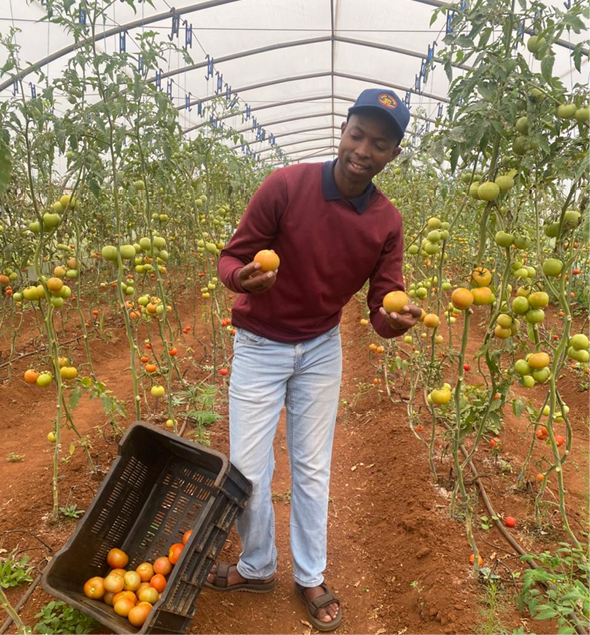Joel Seaja, a passionate young farmer from the West Rand, has a vision that extends beyond simply making money from agriculture. His goal is to create jobs, inspire young people, and provide hope through the potential of farming. “I don’t just want to make money from farming, I want to create employment, inspire other young people, and give them hope,” Seaja said, emphasising his commitment to uplifting his community.

Growing up, the 27-year-old’s ambitions weren’t initially centred on agriculture. He dreamed of becoming a psychologist, but his mother saw a different path for him. “My mum saw through us and realised we were good farmers,” Seaja recalled. “At home, we have a two-hectare plot where we volunteered from a young age. She always said she was preparing us for our own farm.” At the time, Seaja, then still in Grade 5, couldn’t fully grasp her vision - but that early exposure would eventually shape his future.
As he matured, Seaja developed a strong interest in agriculture, attending seminars and workshops. He even coined the phrase, “There’s no culture like agriculture,” to highlight his belief that while mineral resources may run out, agriculture remains a continuous, renewable source of opportunity. In 2022, Seaja’s passion for farming led to his election as Chairperson of the Youth Agriculture and Rural Development (YARD) initiative in the West Rand. In this role, he acts as a liaison between the Gauteng Department of Agriculture and Rural Development and emerging farmers, ensuring young farmers receive the support they need to succeed.
That same year, Seaja’s application to farm at an agri-park was granted, allowing him to cultivate tomatoes and green peppers across ten tunnels. Additionally, he manages 40 beehives for honey production. “The municipality provided the land, and the department developed it. We received the 40 hives from the government, along with extraction machines, bee suits, and the tools needed to become sustainable bee farmers,” he explained. “The government also provided us with inputs, which was crucial.”
Seaja’s formal entry into farming began in 2010, the same year his mother registered their family’s farming cooperative. To strengthen his skills, he completed several short courses in farming and business management. Initially, he supplied major retailers and the Joburg Market but soon encountered the challenges of large-scale distribution. “To make money, you have to supply multiple retailers and compete on price. For example, if you offer spinach for R7, they might tell you someone else is offering it for R5,” Seaja shared.
Currently, he focuses on supplying street vendors, finding it more profitable and sustainable. “With vendors, we can’t keep up with demand, and we save on costs since the clients pick up the produce themselves. We don’t have to pay agent fees,” he said.
Looking ahead, Seaja dreams of managing his own farm, where he can offer internships and create employment opportunities for others—continuing his mission to inspire and support young people in agriculture. Seaja’s business employs four people.
For more information, Gauteng Agriculture can be reached on 011 240 2500 or 0864 201 000, or visit www.gauteng.gov.za.



 Facebook
Facebook Twitter
Twitter WhatsApp
WhatsApp